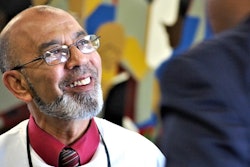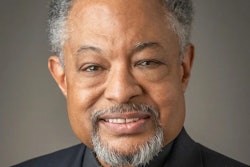Commission Convened to Diversify U.S. Healthcare Work Force DURHAM, N.C.
Former U.S. Secretary of Health and Human Services, Dr. Louis W. Sullivan, has convened a commission that will address the nation’s health gap by focusing attention on the number of underrepresented minorities among the nation’s health professions.
The Sullivan Commission on Diversity in the Healthcare Workforce, named for the former Bush cabinet secretary and former president of the Morehouse School of Medicine, is comprised of key health, business, legal leaders and other experts.
“There is a pressing need to address the nation’s critical shortfall in training doctors, dentists and nurses who can and will attend to the needs of underserved populations,” Sullivan says, adding that medical literature shows that minority physicians are more likely to practice in minority and underserved communities. “Examining the education and training that health professionals receive is critical to efforts to eliminate alarming racial and ethnic health disparities.”
In a teleconference with reporters, Sullivan said the number of Black physicians, for example, has relatively remained the same since the 1980s. He attributed the initial growth in the number of minority physicians to the increased number of medical school openings between the 1950s and 1980s, as well as to the active recruitment and retention efforts of some medical schools. But Sullivan attributes the high-debt burden following medical school and increased malpractice costs as just some of the reasons why the number of Black physicians has remained stagnant. According to the Association of American Medical Colleges Graduates Report, in 1999-2000, 7 percent of U.S. medical school graduates were Black, 2.7 percent Mexican American/Chicano and 0.9 percent American Indian.
The outcome of the University of Michigan’s affirmative action case, now before the U.S. Supreme Court, could also affect the recruiting of minority medical students. Sullivan says the Commission will be watching the case closely.
“Any ruling from the U.S. Supreme Court affecting college admissions will do little, if anything, to change the fact that the consequences of health disparities are grave and will only be addressed through sustained effort and commitment,” Sullivan says. “This commission will detail that case to the American public.”
Over the next year, the commission will conduct field hearings in Atlanta, Chicago, Denver, New York, Los Angeles, and Houston — cities with diverse populations. A final report will be released in Washington, D.C., in the spring of 2004.
The Sullivan Commission is funded by the W.K. Kellogg Foundation and will be administered by the Duke University School of Medicine.
© Copyright 2005 by DiverseEducation.com





















